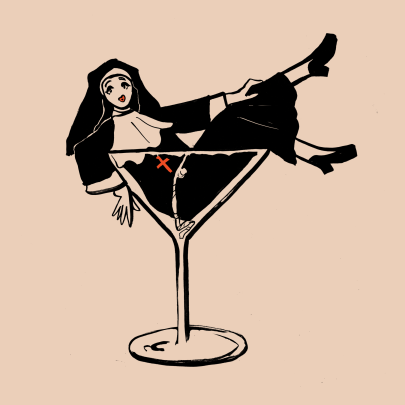Feb 23, 2016 Theatre
The Royal New Zealand Ballet will perform three contemporary classics during the Auckland Arts Festival this March, including Andonis Foniadakis’s frenetic Selon Désir.
“With my dance there is a very high demand of getting it right,” says Andonis Foniadakis. In an online video of the Greek choreographer rehearsing with the Royal New Zealand Ballet (below), you get a hint of just what this takes. In stockinged feet and spectacles, Foniadakis is poised, hands on hips, to burst into movement. With a “no, no, no”, he demonstrates again and again to dancers Alayna Ng and Shane Urton his desired contortions.
“Getting a movement right means getting closer to the precision of how I want the audience to read things,” he says. “If you read a book and you read one word differently to what’s written, you might change the meaning of the whole sentence. So it is very important that the movement gets right.”
That video was shot last October, just before the RNZB danced Foniadakis’s 2004 work Selon Désir at the Royal Opera House in London. Local audiences have the first chance to see the work when the company performs it as one of three contemporary classics in their Speed of Light programme at the Auckland Arts Festival.
Dance critic Mark Monahan had his own idea of what the frenetic work was about when he reviewed it for the Telegraph. “This musing on agony and ecstasy begins with Alayna Ng whipping up an astonishing, shuddering, one-woman orgy. She is soon joined by 15 others, whose uninhibited, stage-filling swoops and swirls could be read as the drama playing out in Ng’s head,” he wrote.
Foniadakis is a little more obtuse. He set the piece to Bach’s religious masterworks the St John and St Matthew Passions and says there is a transcendence to the work. He urges the audience to get curious.
“I want to make them lost in a twister, in a tornado-like musicality and momentum in terms of seeing pictures and seeing structures that pass before their eyes in such a breathtaking way that makes them constantly trying to seek. Constantly trying to feel. Constantly place themselves in the next second. I want them to be active by observing. Trying to understand.”
Foniadakis won’t be back here for the performance. Such is the life of a top international choreographer that he’s always on the move, working with the best dance companies the world over. He has choreographed for the Martha Graham Dance Company, Cedar Lake Contemporary Ballet, Geneva Ballet, Sydney Dance Company.
“I want to make them lost in a twister, in a tornado-like musicality and momentum in terms of seeing pictures and structures that pass before their eyes in such a breathtaking way…”
Foniadakis says the Royal New Zealand Ballet approached his work with a lot of respect. “That made them a bit silent. It was very polite. Very kind. While in other companies sometimes there is much more noise going on. It was interesting because it made my job easier because they were very determined.”
When I catch Foniadakis on the phone he is in Athens, preparing with the Greek National Ballet. It’s a homecoming for the France-based choreographer who grew up on the island of Crete, dancing traditional Greek dances and frequenting discos with his friends in the 80s.
“When I was in college, everything seemed to me very mechanical,” says Foniadakis. “I think I started dancing because it was like a way of expressing things that gave me not only pleasure but a certain type of escape that I could not find in any other activity.”
Foniadakis studied at the National School of Dance in Athens and won a scholarship to the Rudra Bejart School in Lausanne. Over time, he developed his own style of dance, which he describes as being all about bounce and rebounds. “I’m searching to work on certain kinds of spiral qualities that eliminate most of the lines. That’s the base of the work. I really love the concept of up and down.”
Foniadakis’s drive to dance never abated but he is aware of people’s participation in dance diminishing overall. He concedes the Greek economic crisis means Greeks don’t go out so much, but he places more blame on the impact of technology.
“I think technology changes everything. It takes us away from relating to each other in physical contact. Traditional dances were created so the community could come together. They were created for people to mate, to see each other and find a bride and a groom. That doesn’t happen anymore. We don’t have to step out our front door anymore.”
Speed Of Light: Three Brilliant Dance Works, SKYCITY Theatre, March 2-6





